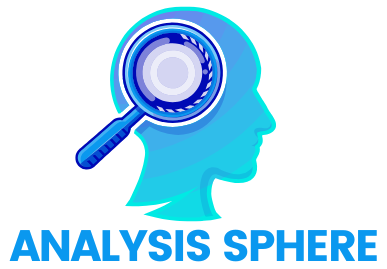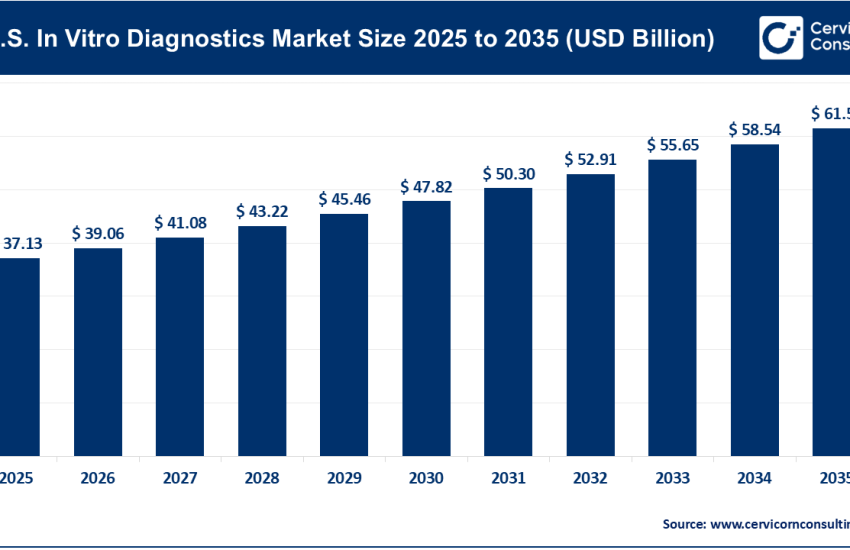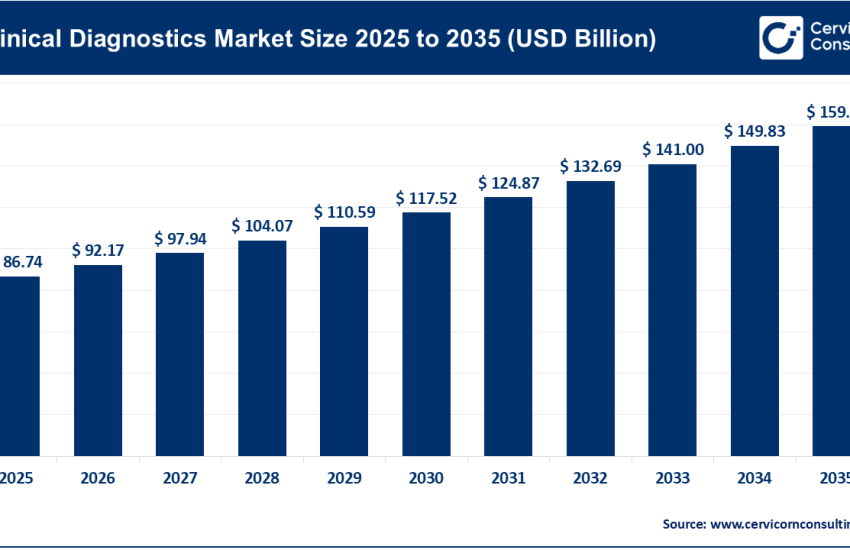U.S. Digital Biomarkers Market Revenue, Global Presence, and Strategic Insights by 2034
U.S. Digital Biomarkers Market Size
The U.S. digital biomarkers market size was worth USD 1.51 billion in 2024 and is anticipated to expand to around USD 10.97 billion by 2034, registering a compound annual growth rate (CAGR) of 21.93% from 2025 to 2034.
What Is the U.S. Digital Biomarkers Market?
Digital biomarkers are quantifiable, objective physiological and behavioral data collected and measured through digital devices such as wearables, smartphones, sensors, and software algorithms. They capture subtle changes in a person’s health status and translate them into measurable outcomes that can be used for diagnosis, treatment monitoring, and disease management. The U.S. digital biomarkers market encompasses research, development, validation, and commercialization of these tools for healthcare and life sciences applications. It combines hardware (sensors), software (AI and machine learning), and regulatory frameworks to deliver clinically meaningful data for improving patient outcomes and streamlining healthcare operations.
The market involves a diverse ecosystem including technology developers, pharmaceutical companies, contract research organizations (CROs), healthcare providers, and public agencies. These stakeholders collaborate to validate, integrate, and regulate digital biomarkers that can serve as digital endpoints in clinical trials, personalized medicine, and remote patient monitoring. The U.S. remains a global hub for innovation and adoption due to strong regulatory support, advanced healthcare infrastructure, and major investments from both public and private sectors.
Get a Free Sample: https://www.cervicornconsulting.com/sample/2551
U.S. Digital Biomarkers Market Growth Factors
The U.S. digital biomarkers market is witnessing robust growth due to several converging factors. The widespread adoption of wearables and mobile health technologies has created an abundant source of real-time data for health monitoring. Decreasing costs of sensors and connected devices have made data acquisition more accessible and scalable. Pharmaceutical and biotech companies are increasingly investing in digital biomarkers to enhance trial efficiency, improve endpoint precision, and enable remote participation. The growing use of artificial intelligence (AI) and machine learning to analyze complex physiological signals has expanded the scope of biomarkers to include voice, gait, and cognitive measures. Moreover, supportive regulatory policies from the U.S. Food and Drug Administration (FDA) and funding initiatives from the National Institutes of Health (NIH) are fostering innovation and de-risking product development. The COVID-19 pandemic also accelerated the acceptance of decentralized and hybrid clinical trials, validating the practical and operational benefits of digital biomarkers in capturing continuous, real-world data. Collectively, these drivers are propelling sustained market expansion from 2025 onward.
Why the U.S. Digital Biomarkers Market Is Important
Digital biomarkers are reshaping healthcare by enabling earlier disease detection, continuous patient monitoring, and data-driven treatment decisions. Unlike traditional biomarkers that rely on invasive testing or sporadic measurements, digital biomarkers provide continuous streams of real-world evidence that reflect day-to-day variations in health. This capability allows healthcare providers and researchers to detect conditions earlier and track disease progression more accurately.
In clinical research, digital biomarkers help shorten trial timelines, improve endpoint sensitivity, and enhance patient diversity by supporting decentralized participation. They also reduce dependency on in-person visits and allow for more dynamic, patient-centric designs. For chronic disease management, digital biomarkers empower individuals to monitor their conditions at home, enhancing adherence and engagement. From a healthcare system perspective, these tools can improve efficiency, reduce hospitalization rates, and support value-based care models. As the U.S. healthcare industry transitions toward precision medicine and personalized care, digital biomarkers are becoming an indispensable element of modern diagnostics and treatment.
U.S. Digital Biomarkers Market Top Companies
Bio-Rad Laboratories, Inc.
- Specialization: Life sciences research tools, clinical diagnostics, and assay systems.
- Key Focus Areas: Bio-Rad supports digital biomarker applications by integrating lab-based diagnostics with digital workflows that connect patient biosamples to analytical platforms.
- Notable Features: Robust quality control solutions, standardized assay products, and strong partnerships with CROs and healthcare providers.
- 2024 Revenue: Approximately USD 2.57 billion.
- Market Share: Bio-Rad plays a foundational role as an enabler in biomarker validation; its diagnostics division indirectly contributes to digital biomarker workflows.
- Global Presence: Headquarters in Hercules, California, with manufacturing and distribution operations across North America, Europe, and Asia.
Abbott
- Specialization: Medical devices, diagnostics, nutrition, and pharmaceuticals.
- Key Focus Areas: Abbott leads in continuous glucose monitoring (CGM) through its FreeStyle Libre system—one of the most prominent digital biomarker applications globally. It also focuses on remote monitoring and real-time data platforms for chronic conditions.
- Notable Features: Deep experience in wearable sensors, strong regulatory track record, and large-scale consumer health distribution.
- 2024 Revenue: Approximately USD 42 billion.
- Market Share: Abbott dominates the digital biomarker space for diabetes management and contributes significantly to expanding clinical-grade wearable adoption.
- Global Presence: Headquartered in Illinois, with a vast global network in diagnostics, manufacturing, and healthcare delivery.
Agilent Technologies, Inc.
- Specialization: Analytical instruments, genomics, and life-science solutions.
- Key Focus Areas: Agilent’s platforms are critical in biomarker discovery, signal validation, and clinical data analysis. Its lab instrumentation and analytics support the conversion of raw biosignals into validated endpoints.
- Notable Features: Advanced spectroscopy, mass spectrometry, and AI-enabled laboratory software used in biomarker research.
- 2024 Revenue: Approximately USD 6.5 billion.
- Market Share: Agilent’s impact lies in providing analytical tools and data systems that support digital biomarker validation, although it does not directly market consumer devices.
- Global Presence: Headquartered in Santa Clara, California, serving research institutions and healthcare companies worldwide.
Johnson & Johnson Services, Inc.
- Specialization: Pharmaceuticals, medical devices, and MedTech innovation.
- Key Focus Areas: Johnson & Johnson integrates digital biomarkers into its clinical development programs and MedTech offerings. The company focuses on wearable sensor integration, surgical robotics, and real-world evidence collection.
- Notable Features: Global R&D networks, advanced data analytics infrastructure, and leadership in digital transformation of healthcare delivery.
- 2024 Revenue: Approximately USD 88.8 billion.
- Market Share: While not exclusively a digital biomarker company, Johnson & Johnson’s scale and investment in digital endpoints have positioned it as an influencer in clinical adoption.
- Global Presence: Operates in over 60 countries with major research and production facilities in the U.S., Europe, and Asia.
Thermo Fisher Scientific, Inc.
- Specialization: Laboratory equipment, biopharma services, reagents, and analytics.
- Key Focus Areas: Thermo Fisher plays a major role in biomarker discovery, data management, and clinical trial support. Its platforms integrate laboratory and digital biomarker data streams, supporting the validation of sensor-based health measures.
- Notable Features: End-to-end services for biopharmaceutical development, powerful data analytics tools, and large-scale research partnerships.
- 2024 Revenue: Approximately USD 42.9 billion.
- Market Share: Thermo Fisher is a major service enabler within the digital biomarker ecosystem, offering infrastructure that connects biological and digital data.
- Global Presence: Based in Waltham, Massachusetts, with an extensive global supply chain and R&D operations.
Leading Trends and Their Impact
1. Wearables and Sensor Integration
The convergence of consumer electronics and medical technology is driving the adoption of clinically validated wearables. Devices like the Apple Watch and Fitbit have transitioned from fitness trackers to regulated medical tools capable of detecting atrial fibrillation and other conditions. This shift is redefining how health data is captured and analyzed in real time.
2. Regulatory Support and Standardization
The U.S. FDA’s guidance on digital health technologies has provided a clear regulatory framework for integrating digital biomarkers into clinical research. This clarity encourages investment and streamlines product approvals, making it easier for companies to bring validated solutions to market.
3. AI and Machine Learning in Data Interpretation
Advanced AI algorithms are being used to extract clinically relevant insights from continuous sensor data. From analyzing voice patterns for neurological diseases to detecting stress through heart rate variability, machine learning enables precise, personalized analysis at scale.
4. Pharma-Tech Collaboration
Partnerships between pharmaceutical companies, tech firms, and research institutions are accelerating innovation. These collaborations enable faster validation, regulatory submission, and commercialization of digital biomarkers that can be incorporated into new drug development pipelines.
5. Decentralized Clinical Trials
Digital biomarkers play a crucial role in the decentralization of clinical research. By enabling remote monitoring and data collection, they help reduce participant burden, expand recruitment diversity, and improve data reliability across distributed populations.
6. Growing Focus on Data Privacy and Ethics
As digital biomarkers rely heavily on continuous data collection, patient privacy and ethical use of data are top priorities. Companies are increasingly adopting privacy-by-design frameworks and transparent consent mechanisms to maintain trust and regulatory compliance.
Successful Examples of Digital Biomarkers Around the World
Apple Heart Study
The Apple Heart Study demonstrated the feasibility of large-scale, remote clinical research using wearable devices. By using the Apple Watch to detect irregular heart rhythms, it showcased how consumer technology could produce validated clinical outcomes and change preventive cardiology practices.
Fitbit Heart Study
Fitbit conducted a nationwide study involving hundreds of thousands of participants to validate its photoplethysmography-based algorithm for detecting atrial fibrillation. The resulting FDA clearance represented a milestone in wearable-based cardiovascular screening.
Verily’s Parkinson’s Research
Verily’s Study Watch has been deployed globally in neurological research, collecting high-frequency motor data to track Parkinson’s disease progression. This study provided some of the most comprehensive datasets on digital motor biomarkers, influencing new clinical endpoints for neurodegenerative diseases.
Alzheimer’s and Cognitive Health Initiatives
Collaborations between academic institutions, technology firms, and nonprofit organizations have used digital biomarkers to detect early cognitive decline. These initiatives apply speech, gait, and activity data to predict mild cognitive impairment and Alzheimer’s risk long before traditional clinical diagnosis.
These global examples underscore the transformative potential of digital biomarkers when robust technology, analytics, and clinical validation intersect.
Global and Regional Analysis — Government Initiatives and Policies Shaping the Market
United States
The U.S. government plays a pivotal role in defining the digital biomarker landscape through supportive policies and investments. The FDA has issued comprehensive guidance on digital health technologies used in clinical investigations, providing a clear roadmap for companies developing and validating digital endpoints. The establishment of the Digital Health Center of Excellence further underscores the agency’s commitment to digital innovation.
The National Institutes of Health (NIH) supports multiple funding programs aimed at accelerating digital biomarker research and validation. By investing in analytical and clinical validation studies, NIH initiatives help bridge gaps between academic research and commercial translation. Additionally, federal support for decentralized clinical trials has expanded opportunities for digital health companies and CROs to integrate real-world data into regulatory submissions.
Together, FDA guidance and NIH funding make the United States the global leader in developing, validating, and commercializing digital biomarkers. The mature regulatory environment reduces uncertainty for innovators and encourages greater investment from the private sector.
Strategic Implications for Stakeholders
Startups and Innovators
Emerging companies must focus on robust analytical validation, clinical evidence generation, and adherence to regulatory frameworks from the earliest development stages. Building partnerships with established device makers or pharmaceutical firms can accelerate market access.
Pharmaceutical and Biotechnology Companies
Pharma organizations should integrate digital biomarkers into their R&D pipelines to enhance endpoint sensitivity and trial efficiency. Collaborating with technology partners allows them to leverage expertise in device integration, AI modeling, and regulatory compliance.
Healthcare Providers and Payers
Healthcare institutions can benefit from real-time monitoring and predictive analytics powered by digital biomarkers. These tools help reduce hospital readmissions and support value-based care models. Payers will increasingly evaluate reimbursement pathways based on demonstrated clinical utility and cost-effectiveness.
Policymakers and Regulators
Government agencies have the opportunity to further catalyze innovation by standardizing data collection methodologies, promoting interoperability, and offering incentives for digital health validation. Continued investment in infrastructure and data governance frameworks will ensure sustained market momentum.
To Get Detailed Overview, Contact Us: https://www.cervicornconsulting.com/contact-us
Read Report: Carbon Steel Market Revenue, Global Presence, and Strategic Insights by 2034


